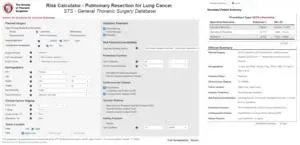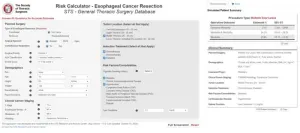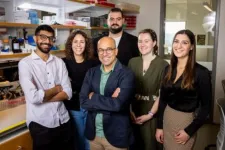(Press-News.org) Consuming more ultra-processed foods — from diet sodas to packaged crackers to certain cereals and yogurts — is closely linked with higher blood sugar levels in people with Type 2 diabetes, a team of researchers in nutritional sciences, kinesiology and health education at The University of Texas at Austin have found.
In a paper recently published in the Journal of the Academy of Nutrition and Dietetics, the team describes how — even more than just the presence of sugar and salt in the diet — having more ultra-processed foods laden with additives can lead to higher average blood glucose levels over a period of months, a measure called HbA1C.
“There are a lot of ways to look at and measure healthy eating,” said senior author Marissa Burgermaster, assistant professor of nutritional sciences at UT. “We set out to see which measurement was associated with blood sugar control in people with Type 2 diabetes. We found that the more ultra-processed foods by weight in a person’s diet, the worse their blood sugar control was, and the more minimally processed or unprocessed foods in a person’s diet, the better their control was.”
The study used baseline data from an ongoing clinical trial called Texas Strength Through Resilience in Diabetes Education (TX STRIDE), led by Mary Steinhardt in UT’s College of Education. Participants included 273 African American adults diagnosed with Type 2 diabetes and recruited through Austin-area churches. Each participant provided two 24-hour diet recalls and a blood sample to measure HbA1C.
The researchers examined the diet recalls and scored them against three widely used indexes that look at the overall quality or nutrition in a person’s diet, but those tools were not associated with blood glucose control. Instead, how many grams of ultra-processed food the participants ate or drank was linked to worse control, and a correspondingly better control occurred in participants who ate more whole foods or foods and drinks with minimal processing.
Recent studies have indicated that eating more ultra-processed foods is linked to higher rates of cardiovascular disease, obesity, sleep disorders, anxiety, depression and early death. Ultra-processed foods are typically higher in added sugars and sodium, but the researchers concluded that the A1C increases were not about merely added sugar and sodium, or they would have correlated with the tools that measure overall nutritional quality in the diet. Synthetic flavors, added colors, emulsifiers, artificial sweeteners and other artificial ingredients may be in part to blame, hypothesized Erin Hudson, a graduate student author of the paper, and this would suggest that dietary guidelines may need to begin to place more emphasis on ultra-processed foods.
For participants of the study who were not on insulin therapy, a diet with 10% more of its overall grams of food being ultra-processed was associated with HbA1C levels that were, on average, 0.28 percentage points higher. Conversely, those whose diet contained a 10% higher amount of overall food being minimally processed or unprocessed had HbA1C levels, on average, 0.30 percentage points lower. Having an HbA1C below 7 is considered ideal for people with Type 2 diabetes, and people who consumed, on average, 18% or fewer of their grams of food from ultra-processed foods were more likely to meet this mark.
Jaimie N. Davis, Keally Haushalter, Hirofumi Tanaka and Susan K. Dubois of UT Austin were also authors on the paper. The research was funded by the National Institutes of Health.
END
Ultra-processed foods pose unique dangers for people with type 2 diabetes
Researchers found ultra-processed foods, even diet ones, bring distinct risks for people with diabetes.
2024-10-17
ELSE PRESS RELEASES FROM THIS DATE:
When hurricanes hit, online chatter drowns out safety messaging
2024-10-17
Hoboken, N.J. October 17, 2024 – When natural disasters strike, social networks like Facebook and X (formerly known as Twitter) can be powerful tools for public communication—but often, rescue workers and government officials struggle to make themselves heard above the general hubbub.
In fact, new research from the Stevens Institute of Technology shows, during four recent major hurricanes, important public safety messaging was drowned out by more trivial social content—including people tweeting about pets, sharing human-interest stories, or bickering about politics. That’s a big problem for officials working to understand where help is needed ...
Study seeks rapid, paper-based test to detect cancer cells in cerebrospinal fluid
2024-10-17
With time being of the essence for patients facing one of cancer's most dire complications, UCLA researchers are working to create a new test to detect cancer’s spread to the central nervous system on the same day as the doctor’s visit.
When cancer spreads from its primary site, such as the lungs or breast, to the brain or spine, there are well-established methods of treating it. However, when these metastases spread to the cerebrospinal fluid (CSF), a condition known as leptomeningeal disease (LMD), median survival drops to around four ...
Raising happy eaters: Unlocking the secrets of childhood appetite
2024-10-17
URBANA, Ill. — The foundation for healthy eating behavior starts in infancy. Young children learn to regulate their appetite through a combination of biological, psychological, and sociological factors. In a new paper, researchers at the University of Illinois Urbana-Champaign propose a model that explores these factors and their interactions, providing guidelines for better understanding childhood appetite self-regulation.
“When we talk about obesity, the common advice is often to just eat less and exercise more. That’s a simplistic recommendation, which almost makes it seem ...
The Society of Thoracic Surgeons launches two new thoracic surgery risk calculators
2024-10-17
CHICAGO, IL – October 17, 2024 – The Society of Thoracic Surgeons (STS) announces the release of two new risk calculators to inform physician-patient decision-making in thoracic surgery. Engineered using contemporary data from the STS General Thoracic Surgery Database, these interactive tools provide surgeons with accurate, preoperative risk estimations for outcomes of esophagectomy for cancer and pulmonary resection for lung cancer.
The mobile-friendly risk calculators allow surgeons and multidisciplinary ...
FAPESP and CNR plan to launch joint call for proposals in April 2025
2024-10-17
FAPESP representatives visited the headquarters of Italy’s Consiglio Nazionale delle Ricerche (CNR) in Bologna on October 16th to sign a new work plan that will enable the implementation of a cooperation agreement signed by the institutions in December 2023.
The aim is to enable joint funding of research projects in the following areas: Cultures, Inmaterial Heritage, Interdisciplinary Networks; Agri-food and Sustainable Development; Technology and Innovation; and Health and the Environment.
Researcher mobility and ...
Smaller, more specific academic journals have more sway over policy
2024-10-17
DURHAM, N.C. – Scientists don't just want their results to be published; they want them to be published in the most influential journal they can find. This focus on a high 'impact factor' is driven by their concerns about promotion and tenure, but it may be overlooking the important role that smaller publications can play in the advancement of their science.
A new paper, “Role of low-impact-factor journals in conservation implementation,” appearing Oct. 17 in the journal Conservation ...
Medicaid ACOs have not yet improved care for kids with asthma
2024-10-17
In its first three years of operation, Medicaid’s primary care-focused Accountable Care Organizations (ACOs) in Massachusetts showed “no clear evidence of success” in improving asthma care for children, according to research led by the University of Massachusetts Amherst and UMass Chan Medical School-Baystate Health.
The study, published recently in JAMA Pediatrics, compared the asthma care of Medicaid-insured children affiliated with a Medicaid ACO to that of children with private insurance. Senior author Dr. Sarah Goff, a practicing pediatrician and internist ...
New study sheds light on lily toxicity in cats; outpatient treatment may be viable option
2024-10-17
FOR MORE INFORMATION
Michael San Filippo
Senior Media Relations Manager
American Veterinary Medical Association
Cell/Text: 847-732-6194
msanfilippo@avma.org
New study sheds light on lily toxicity in cats; outpatient treatment may be viable option
(SCHAUMBURG, Illinois) October 17, 2024—A study published recently in the Journal of the American Veterinary Medical Association (JAVMA) has revealed new insights into the treatment of cats exposed to toxic lilies, offering hope for pet owners facing this common household hazard.
The study (“Prevalence of acute kidney ...
A new benchmark to recognize the hardest problems in materials science
2024-10-17
Scientists hope that quantum computing will help them study complex phenomena that have so far proven challenging for current computers – including the properties of new and exotic materials. But despite the hype surrounding each new claim of “quantum supremacy”, there is no easy way to say when quantum computers and quantum algorithms have a clear and practical advantage over classical ones.
A large collaboration led by Giuseppe Carleo, a physicist at the Swiss Federal Institute for Technology (EPFL) in Lausane and the member of the National Center for Competence in Research NCCR MARVEL, has now ...
Why do we love carbs? The origins predate agriculture and maybe even our split from Neanderthals
2024-10-17
If you’ve ever struggled to reduce your carb intake, ancient DNA might be to blame.
It has long been known that humans carry multiple copies of a gene that allows us to begin breaking down complex carbohydrate starch in the mouth, providing the first step in metabolizing starchy foods like bread and pasta. However, it has been notoriously difficult for researchers to determine how and when the number of these genes expanded. Now a new study led by The University of Buffalo (UB) and The Jackson Laboratory (JAX) showcases how early duplications of this ...
LAST 30 PRESS RELEASES:
New knowledge on heritability paves the way for better treatment of people with chronic inflammatory bowel disease
Under the Lens: Microbiologists Nicola Holden and Gil Domingue weigh in on the raw milk debate
Science reveals why you can’t resist a snack – even when you’re full
Kidney cancer study finds belzutifan plus pembrolizumab post-surgery helps patients at high risk for relapse stay cancer-free longer
Alkali cation effects in electrochemical carbon dioxide reduction
Test platforms for charging wireless cars now fit on a bench
$3 million NIH grant funds national study of Medicare Advantage’s benefit expansion into social supports
Amplified Sciences achieves CAP accreditation for cutting-edge diagnostic lab
Fred Hutch announces 12 recipients of the annual Harold M. Weintraub Graduate Student Award
Native forest litter helps rebuild soil life in post-mining landscapes
Mountain soils in arid regions may emit more greenhouse gas as climate shifts, new study finds
Pairing biochar with other soil amendments could unlock stronger gains in soil health
Why do we get a skip in our step when we’re happy? Thank dopamine
UC Irvine scientists uncover cellular mechanism behind muscle repair
Platform to map living brain noninvasively takes next big step
Stress-testing the Cascadia Subduction Zone reveals variability that could impact how earthquakes spread
We may be underestimating the true carbon cost of northern wildfires
Blood test predicts which bladder cancer patients may safely skip surgery
Kennesaw State's Vijay Anand honored as National Academy of Inventors Senior Member
Recovery from whaling reveals the role of age in Humpback reproduction
Can the canny tick help prevent disease like MS and cancer?
Newcomer children show lower rates of emergency department use for non‑urgent conditions, study finds
Cognitive and neuropsychiatric function in former American football players
From trash to climate tech: rubber gloves find new life as carbon capturers materials
A step towards needed treatments for hantaviruses in new molecular map
Boys are more motivated, while girls are more compassionate?
Study identifies opposing roles for IL6 and IL6R in long-term mortality
AI accurately spots medical disorder from privacy-conscious hand images
Transient Pauli blocking for broadband ultrafast optical switching
Political polarization can spur CO2 emissions, stymie climate action
[Press-News.org] Ultra-processed foods pose unique dangers for people with type 2 diabetesResearchers found ultra-processed foods, even diet ones, bring distinct risks for people with diabetes.





